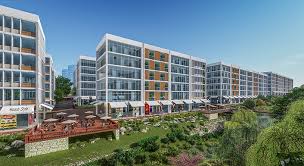
Revolutionizing UAE Businesses with ERP: Unveiling the Top ERP Software Companies in Dubai
Introduction
In the ever-evolving digital landscape of the UAE, businesses face increasing pressure to streamline their operations, reduce redundancies, and enhance productivity. To stay competitive, organizations across industries are turning to ERP software as their cornerstone for digital transformation. Whether it’s managing inventory, human resources, finance, procurement, or customer relations, ERP solutions unify all functions into a single integrated system.
This blog post takes a deep dive into the ERP software ecosystem in the UAE, specifically exploring the top ERP software companies in Dubai, and explaining why ERP has become an indispensable asset for modern businesses.
What is ERP Software?
ERP stands for Enterprise Resource Planning, a type of software that automates and integrates core business processes. Instead of using separate systems for finance, HR, manufacturing, and sales, ERP brings them into one unified platform. This centralized approach enhances visibility, coordination, and decision-making.
Modern ERP systems often include modules for:
- Financial management
- Human capital management
- Supply chain management
- Customer relationship management (CRM)
- Inventory and order management
The Importance of ERP in Modern Business
ERP software enables:
- Improved data accuracy through real-time updates
- Streamlined operations with centralized workflows
- Better compliance and risk management
- Enhanced reporting and analytics for decision-makers
By eliminating manual entry, duplicated tasks, and communication gaps, ERP helps companies achieve operational excellence.
Market Trends of ERP Software in UAE
The UAE, and especially Dubai, is embracing smart city initiatives and digitization. As a result, ERP adoption is rapidly increasing. With the rise of e-commerce, logistics, manufacturing, and finance, businesses are leveraging ERP systems to scale efficiently.
Trends include:
- Cloud-based ERP adoption
- Mobile accessibility
- Integration with AI and machine learning
- Industry-specific ERP modules (e.g., for construction, retail, or hospitality)
📍 ERP Software UAE: Current Landscape
The UAE ERP market is driven by both global giants like SAP, Oracle, and Microsoft Dynamics, and by local players who understand the regulatory, cultural, and business-specific nuances of the Gulf region.
Key highlights:
- UAE-based SMEs are increasingly adopting ERP to compete with larger corporations.
- Government-backed digital transformation programs are accelerating ERP usage.
- Cloud-native ERP platforms are gaining traction for cost efficiency and scalability.
Top sectors implementing ERP in UAE:
- Logistics
- Construction
- Manufacturing
- Healthcare
- Hospitality
🏙️ ERP Software Companies in Dubai
Dubai is the business hub of the Middle East, and home to several top ERP software companies offering tailored solutions for the regional market.
Top ERP Providers in Dubai:
| Company | Notable Features | Industry Served |
|---|---|---|
| Focus Softnet | Cloud and mobile ERP; localized modules | Healthcare, education, retail |
| Peniel Technology | Quick implementation, free trials | SMEs across UAE |
| Enterprise Systems Analysis Technology (ESAT) | Custom-built ERP for logistics & construction | Logistics, construction |
| Sage Middle East | Financial & accounting-focused ERP | Finance, manufacturing |
| Tally Solutions | Simplified finance ERP | Small businesses |
These companies provide consultation, deployment, training, and support for ERP software tailored to Dubai’s dynamic economic environment.
Benefits of Choosing a Local ERP Provider
Choosing a UAE-based or Dubai-based ERP vendor brings the following advantages:
- Regulatory Compliance: Local vendors understand VAT regulations and government compliance protocols.
- Localized Support: Easier access to support in Arabic or English, aligned with UAE business hours.
- Cost Efficiency: Competitive pricing compared to global ERP giants.
- Customization: Ability to tailor software modules for the local market.
How to Choose the Right ERP Solution in UAE
Selecting the ideal ERP software requires aligning your business goals with a solution that meets your operational needs. Here’s a quick guide:
- Assess Requirements: Define processes you want to automate (e.g., finance, inventory).
- Set Budget: Include software cost, implementation, training, and support.
- Scalability: Choose a solution that can grow with your business.
- Deployment Type: Decide between on-premise or cloud-based ERP.
- Vendor Evaluation: Check client reviews, industry fit, and support quality.
Cloud-Based ERP vs On-Premise:
Cloud ERP:
- Accessible from anywhere
- Lower upfront cost
- Regular automatic updates
On-Premise ERP:
- Greater control over data
- Customizable
- Higher initial investment but no recurring subscription
Recommendation: Most UAE businesses are opting for cloud-based ERP for flexibility and cost savings.
Key Industries Using ERP in the UAE
ERP software isn’t one-size-fits-all. Different industries adopt ERP in different ways:
- Retail: Real-time inventory management, POS integration
- Construction: Project planning, cost control, resource allocation
- Healthcare: Patient records, billing, compliance
- Hospitality: Booking management, HR, procurement
- Logistics: Fleet tracking, warehousing, shipment tracking
Real-World Success Stories from Dubai & UAE
Case Study 1: Retail Chain in Dubai
A growing retail chain implemented Focus ERP and reduced stock-outs by 30% and improved inventory accuracy by 90%.
Case Study 2: Construction Firm in Sharjah
An engineering firm used ESAT’s construction ERP module to manage site resources, reducing delays by 25%.
Case Study 3: Healthcare Provider in Abu Dhabi
A hospital used Peniel ERP to streamline patient admissions, improving patient service time by 40%.
Common ERP Implementation Challenges & Solutions
| Challenge | Solution |
|---|---|
| Employee resistance | Provide adequate training and involve staff early |
| Budget overruns | Define scope clearly and avoid scope creep |
| Data migration issues | Back up data and use expert-led migration |
| Integration with legacy systems | Choose modular ERP systems with flexible APIs |
The Future of ERP Software in UAE
The ERP future in the UAE is:
- AI-driven: Forecasting, predictive analytics
- Blockchain-powered: Especially in finance and logistics
- Integrated with IoT: Real-time monitoring in industries like manufacturing and logistics
With the UAE Vision 2030 focusing on innovation and digitalization, ERP will remain at the center of business infrastructure.
Conclusion
ERP software is no longer optional in today’s fast-paced UAE business environment—it’s a necessity. From local Dubai startups to UAE-wide enterprises, organizations are leveraging ERP to centralize operations, boost efficiency, and achieve scalable growth. By choosing the right ERP software companies in Dubai, businesses can secure a competitive edge in a digitally transformed future.
FAQs
1. What is the average cost of ERP software in the UAE?
Costs vary based on company size and modules, but small business ERP packages start at AED 10,000.
2. Is cloud ERP better than on-premise ERP for UAE businesses?
Yes, due to flexibility, scalability, and lower upfront costs, cloud ERP is preferred by many growing businesses in the UAE.
3. Can ERP software be customized for my industry?
Absolutely. Most ERP companies in Dubai offer industry-specific modules (e.g., construction, retail, healthcare).
4. How long does ERP implementation take in Dubai?
Typically 3–6 months, depending on business size and scope of modules.
5. Are there VAT-compliant ERP systems in the UAE?
Yes, most local ERP software providers ensure VAT compliance as per UAE regulations.


